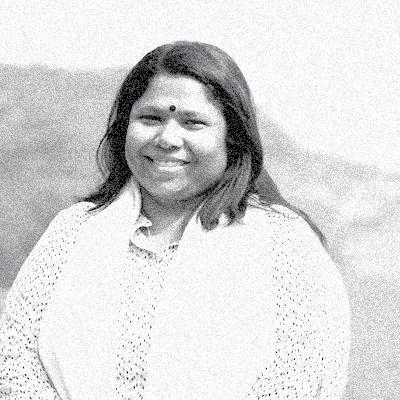
3 minute read
SO THAT EVERYONE CAN GET THEIR DUE ECONOMIC JUSTICE
Why do we need to talk about economic justice?
April 24, 2023 will be the 10-year anniversary of the deadly Rana Plaza building collapse in Dhaka, the capital of Bangladesh. The building housed multiple garment factories where thousands of workers laboured for long hours—specifically, female textile and garment workers. Textile products make up over 80% of the goods and services exported by Bangladesh. It is the second-largest clothing exporter in the world, after China. Many fashion brands sold here, in Canada, source from these factories.
Advertisement
In the following pages, we’ll explore the story of Rana Plaza, now a symbol of the problems with “fast fashion.” We hope that this will encourage you to act in solidarity with Bangladeshi workers in order to create a world filled with justice and solidarity.
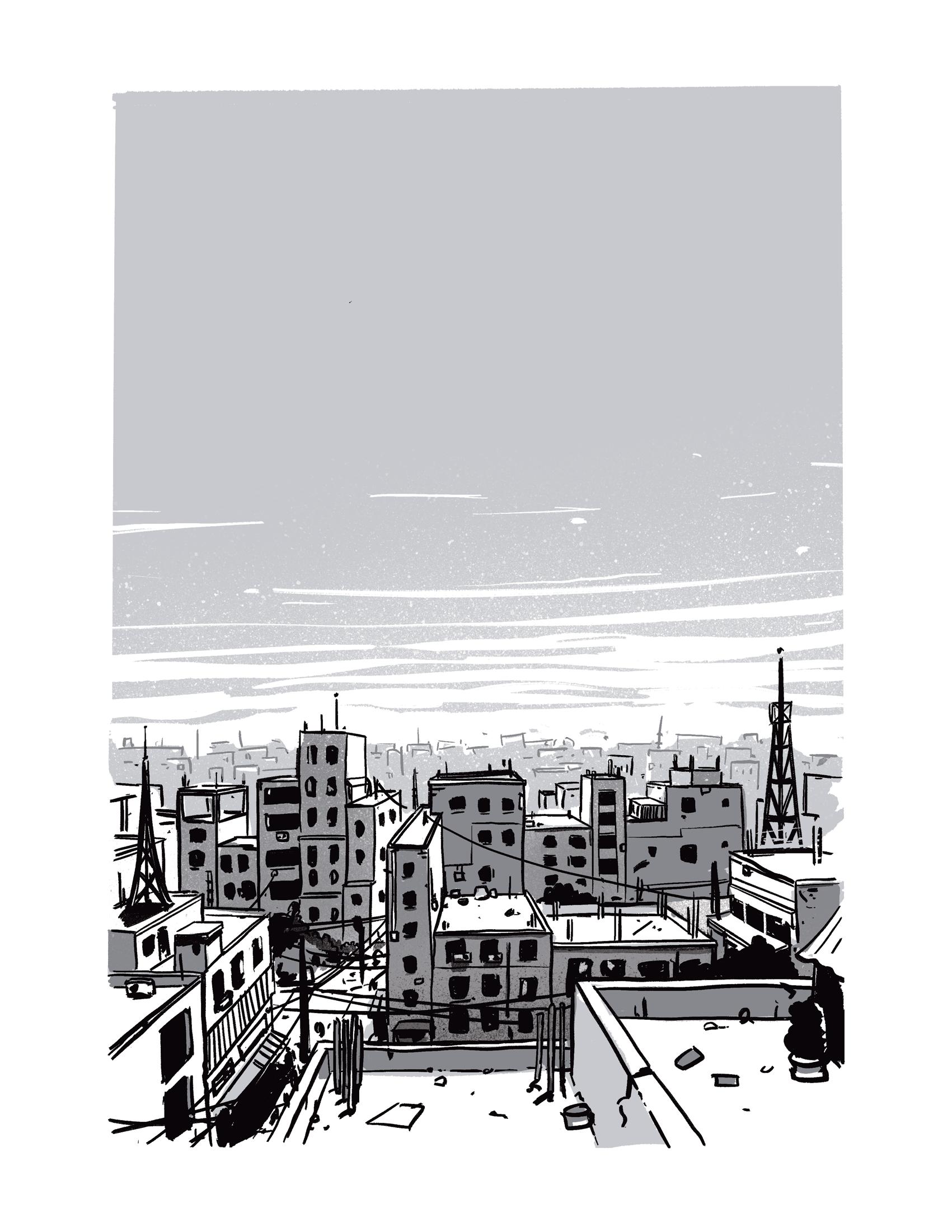
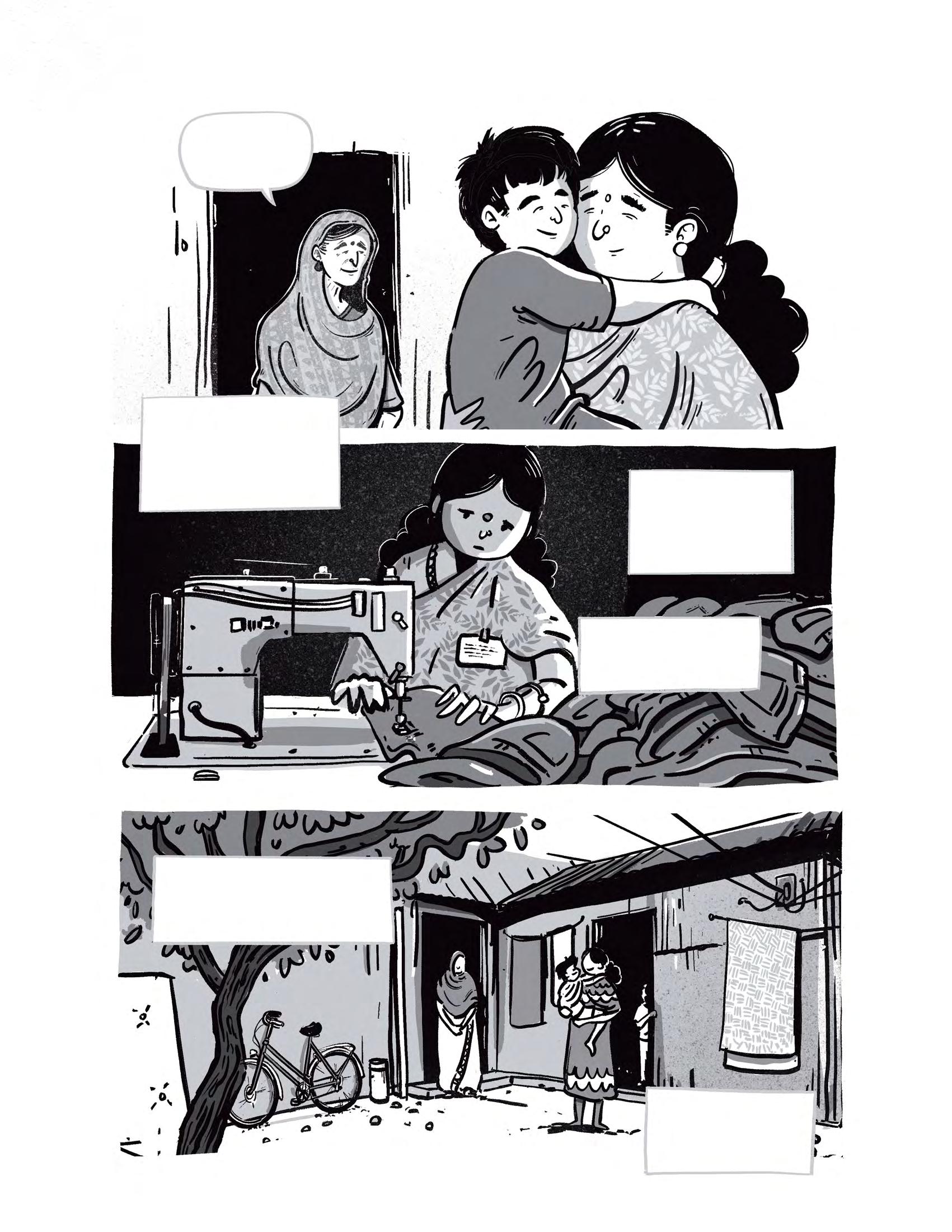

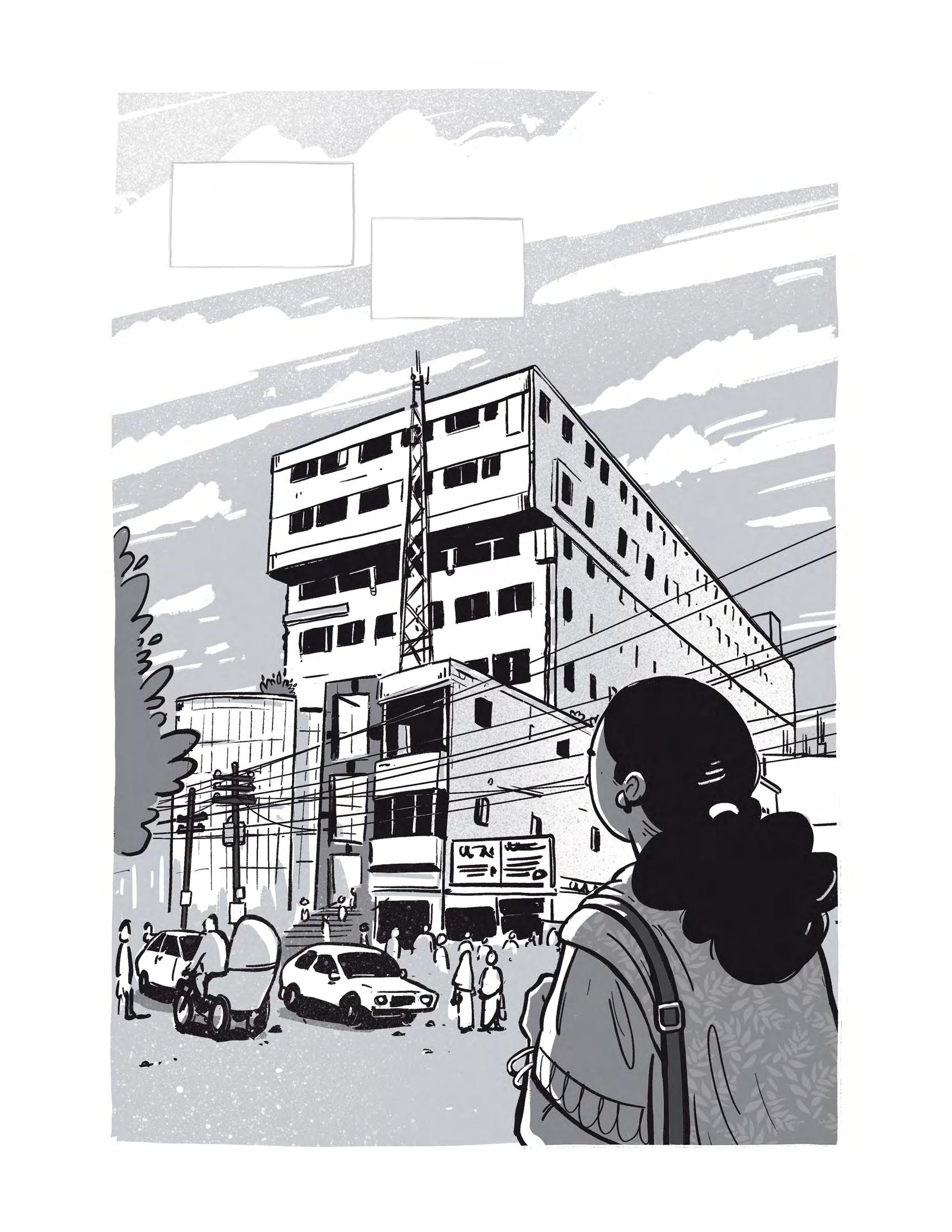

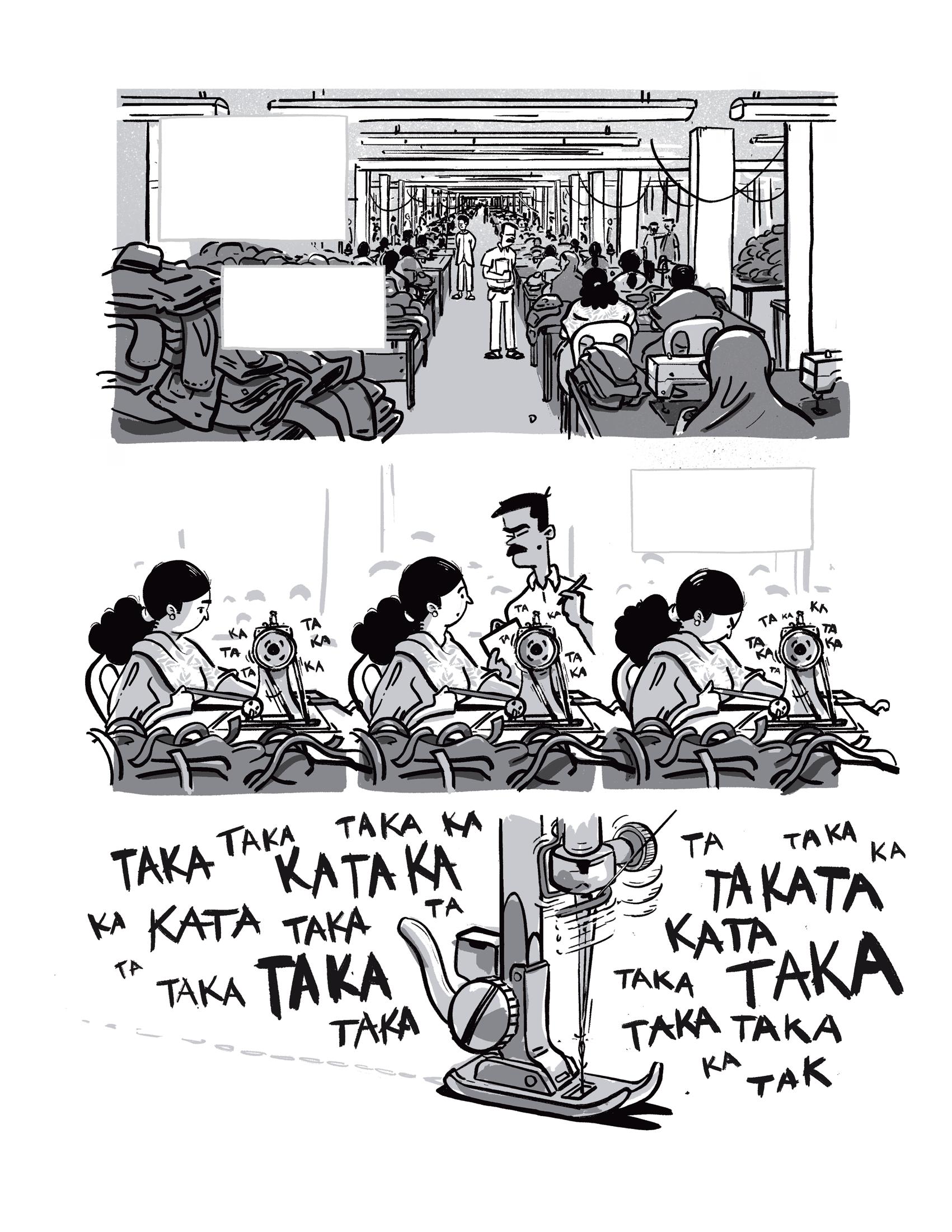



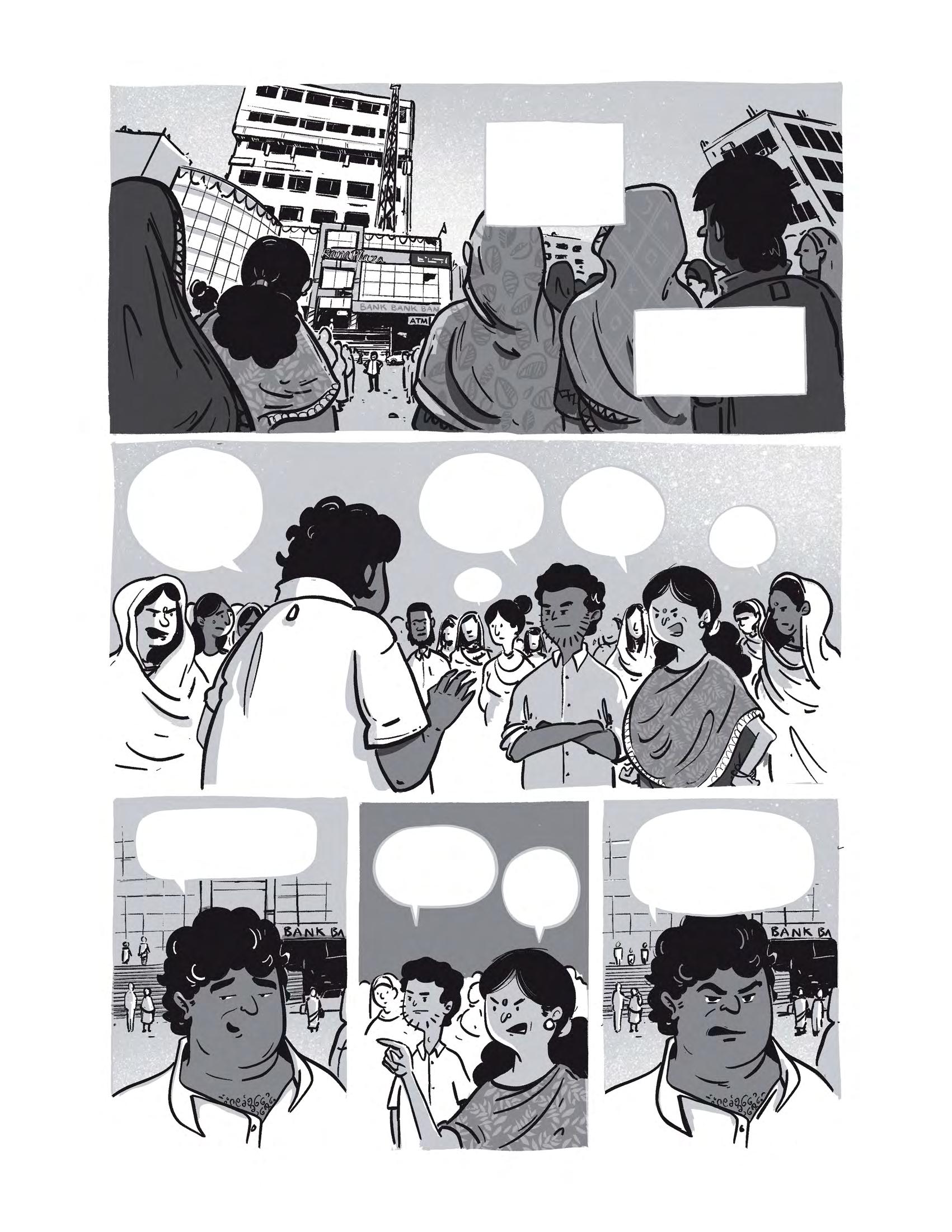




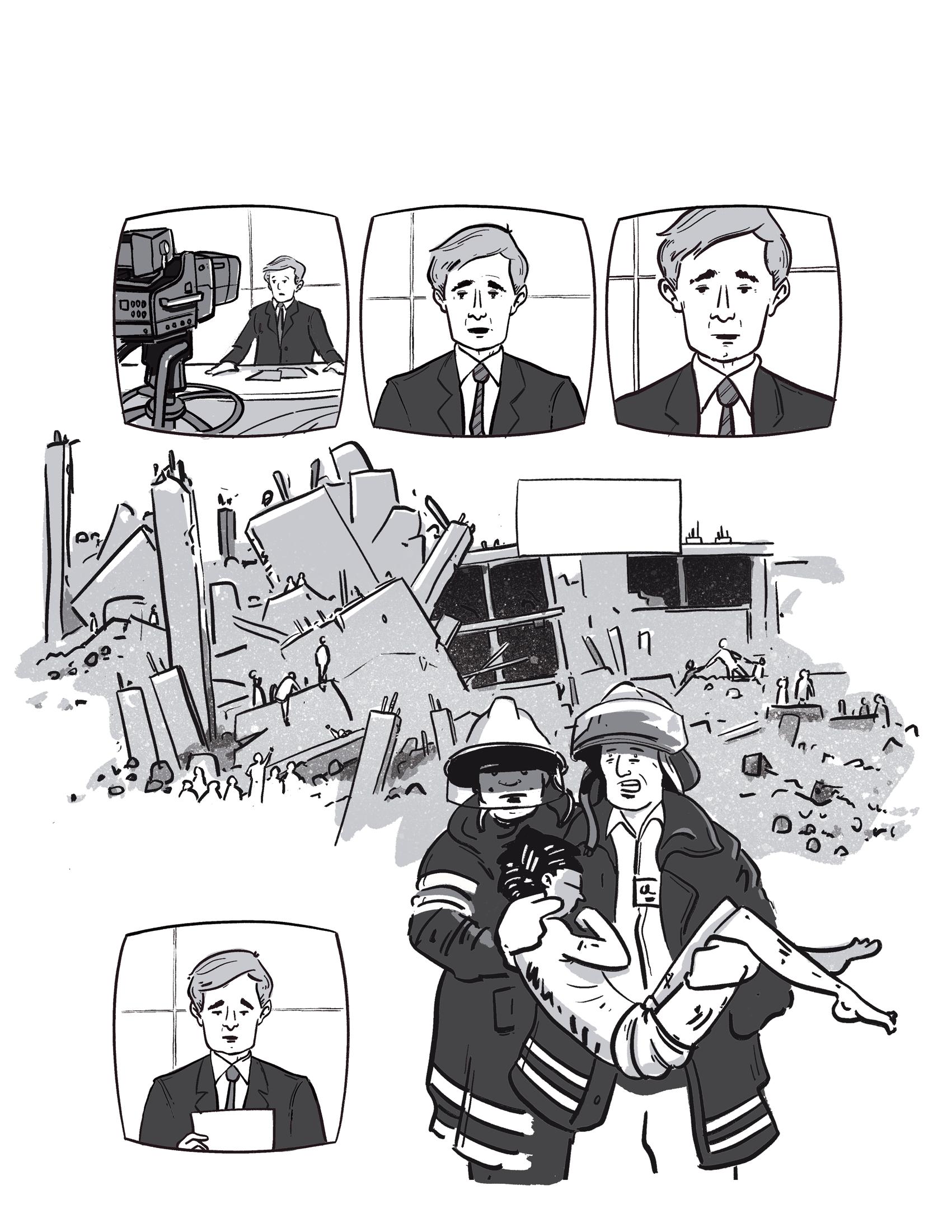

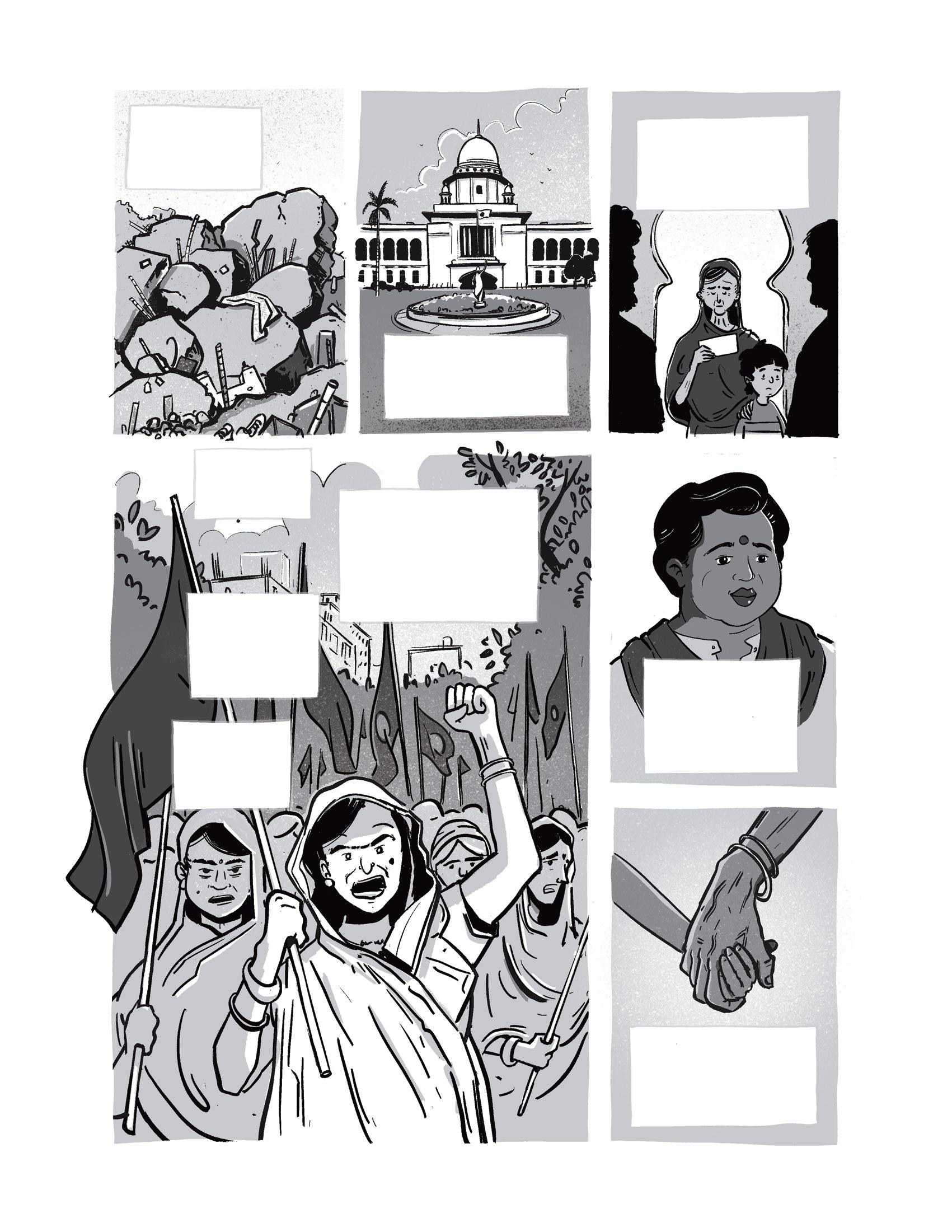

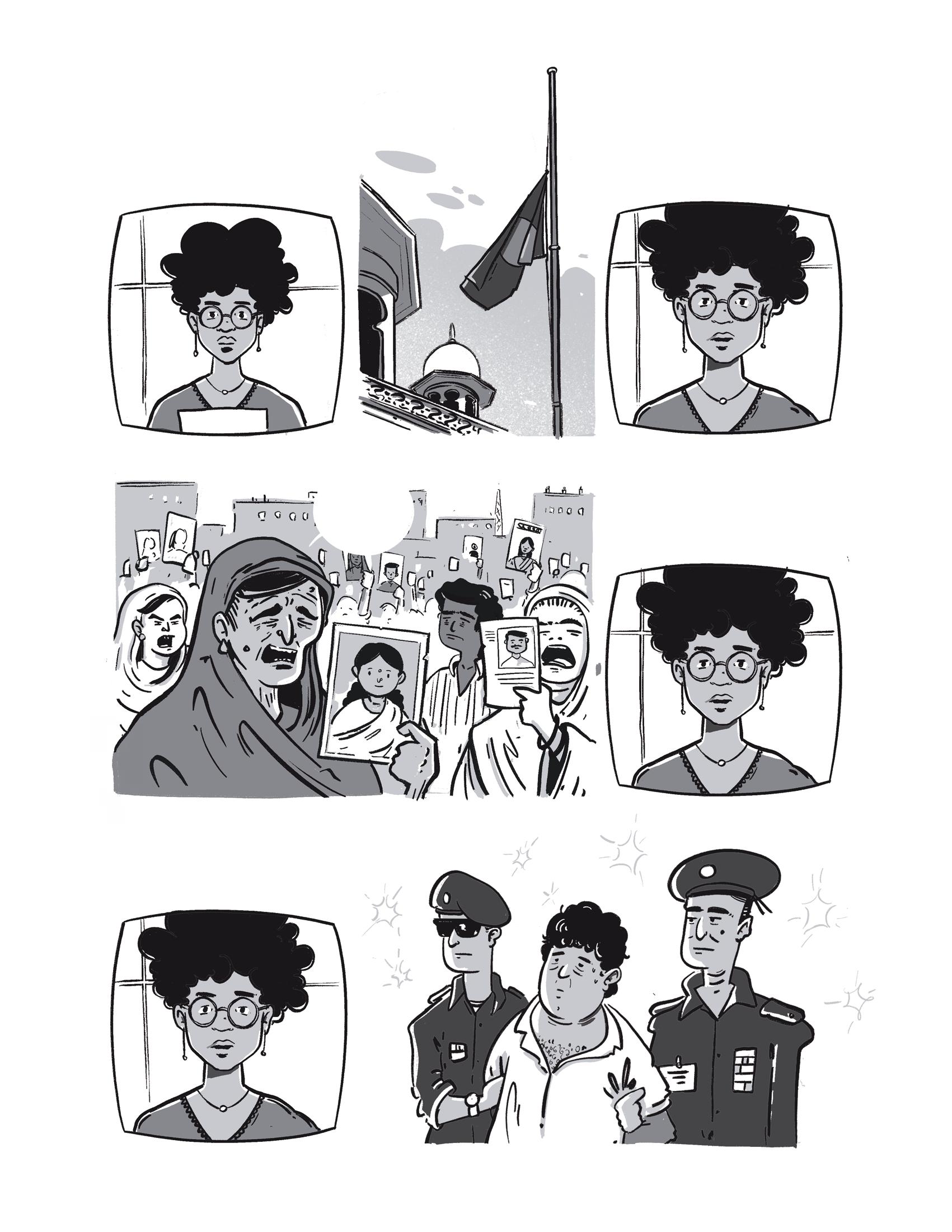

Even working 12 to 15 hours a day, many textile workers in Bangladesh don’t make enough to cover their family’s basic needs.
Child labour has been in decline around the world over recent years.
Since 2020, due to the pandemic, the fortunes of the 10 richest men in the world have decreased significantly.
Governments cannot stop human rights abuses committed by private companies
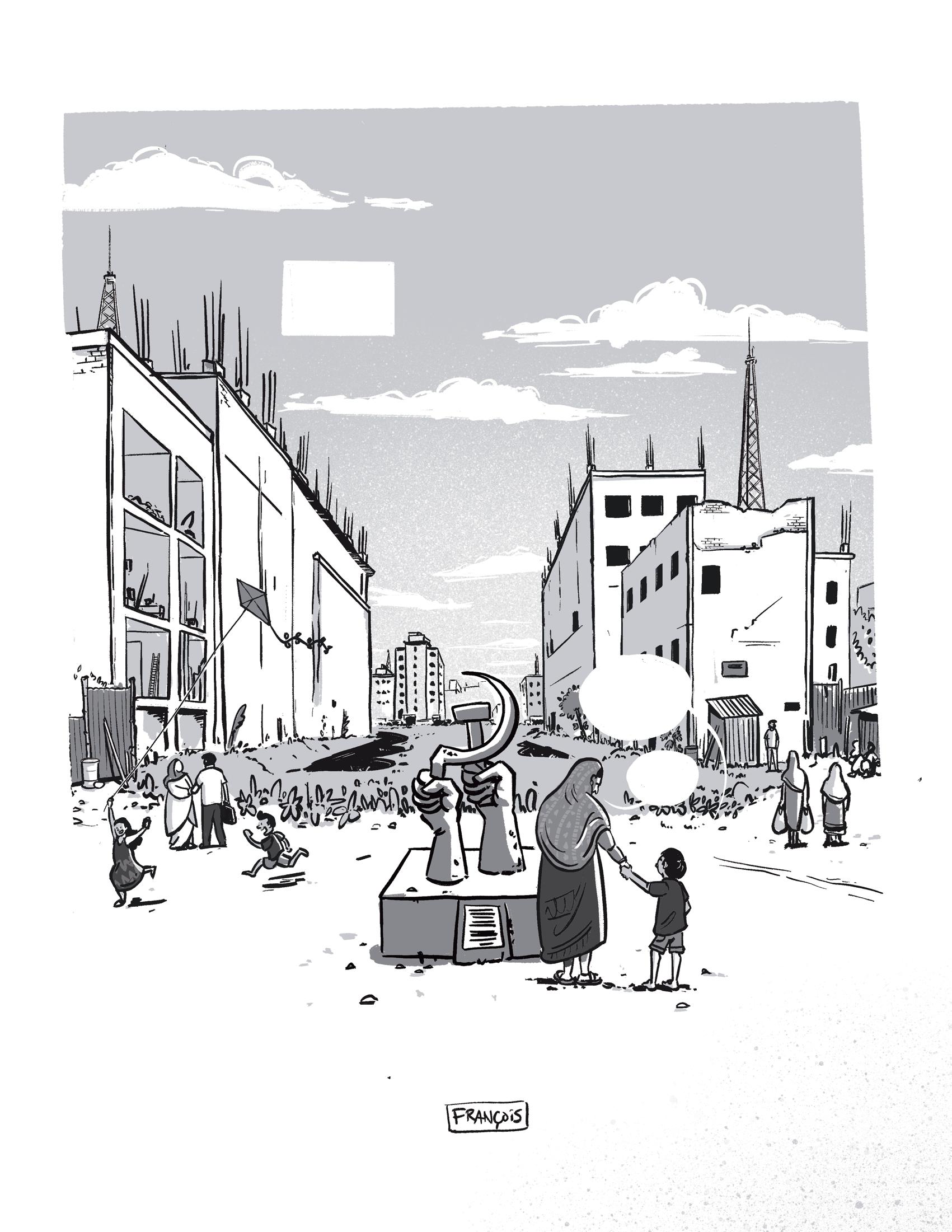
The majority of people at risk of human trafficking and forced labour are women and girls.

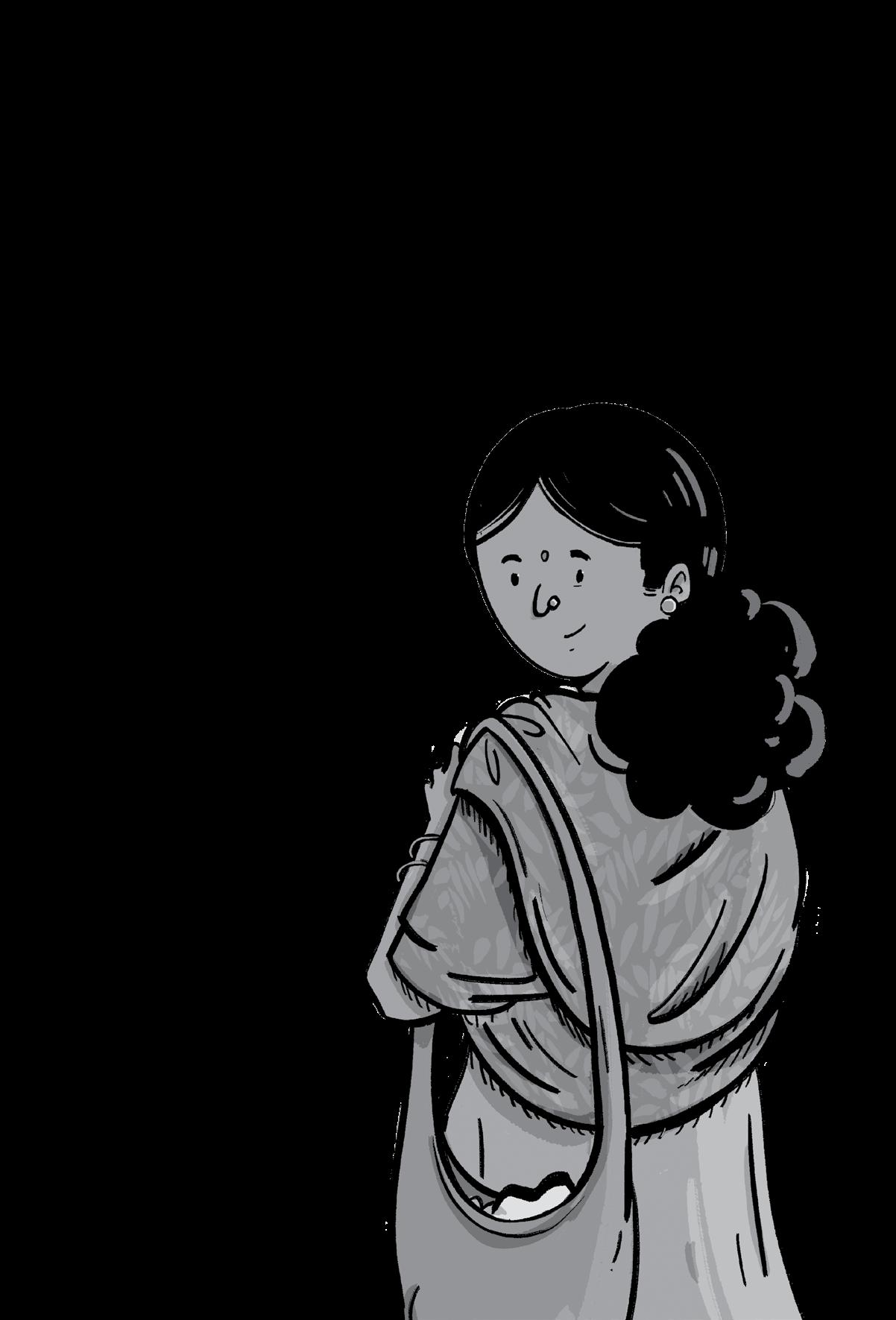
Answers Answers Answers Answers Answers Answers Answers Answers

While safety in factories has improved considerably following the Rana Plaza collapse and the efforts brought by the Bangladeshi workers’ movements, the starvation wages remain unchanged. Workers’ average monthly wage of 8,000 takas ($125) is one of the lowest among the Ready-made garment (RMG) manufacturing countries.
1: TRUE
Source: Steelworkers Humanity Fund, Not Even the Bare Minimum January 2021.
2: FALSE It’s estimated that 160 million children are currently victims of forced labour, which deprives them of their childhoods, their potential and their dignity, and harms their physical and mental development. Since 2016, the number of children doing dangerous work has increased by 6.5 million, totalling 79 million in 2021.
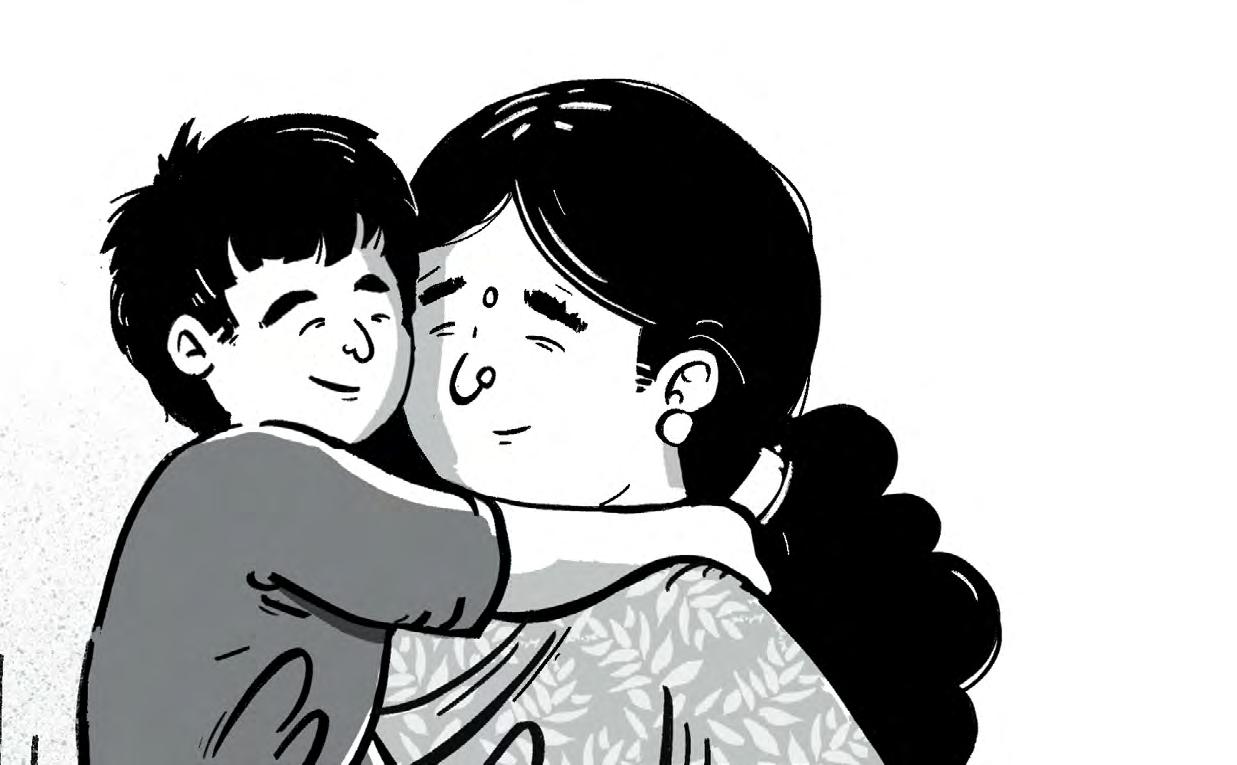
Source: UNICEF, Ten Things You Didn’t Know about Child Labour, June 2021.
3: FALSE Unfortunately, this is false. The wealth of the 10 richest men in the world doubled during the pandemic, while the income of 99% of the rest of the world decreased. Inequality, both within countries and between countries, has only continued to increase. This trend was exacerbated during the COVID-19 pandemic.
Sources: Oxfam-Québec, Inequality Kills January 2022.
4: FALSE On the contrary! Nations, governments and parliaments have the means to pass laws and implement legal mechanisms to protect communities from human rights abuses and environmental destruction on the part of multinational corporations. In fact, multiple international treaties, like the Universal Declaration of Human Rights, state that they are obligated to protect these rights. Unfortunately, many governments fail to meet their human rights obligations.
Source: Amnesty International, Mining and Human Rights in Senegal May 2014.
5: TRUE Millions of people around the world are at risk of human trafficking. Approximately 70% of victims are women and girls, and more than a third are children. The majority of these people were forced to leave their homes due to armed conflict, socio-economic struggles, or natural disasters. Human trafficking victims are primarily compelled into sexual exploitation (50%) or forced labour (40%).
Source: AQOCI, Ce qu’il faut dénoncer : la traite des filles et des femmes November 2021.
‘‘Poverty wages. That is what the women and men who make clothes in Bangladesh’s garment factories are paid. This is a fact and it has been this way for a long time. It was true when I started working in a garment factory as a child more than 20 years ago.
Every day we are confronted by the desperation, heartbreak, anger, as well as courage of workers trapped in poverty. During our long struggle for better wages and working conditions we have seen progress and setbacks, but the fact remains that the world’s biggest retailers and fashion brands have built their profits on the poverty wages paid to women and men working for them in their supply chains.
When I was younger and at times felt powerless to bring change, my mother told me, ‘Always someone can start.’ Canadian companies can start. They have a responsibility to workers in their supply chain to pay living wages, respect workers’ rights, and to cushion the impact of COVID and make sure workers and their families survive.
- Kalpona Akter President of the Bangladesh Garment and Industrial Workers Federation and Founder and Executive Director of the Bangladesh Center for Worker Solidarity

Source: Fonds humanitaire des Métallos, Même pas le strict minimum January 2021.
